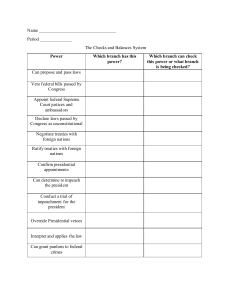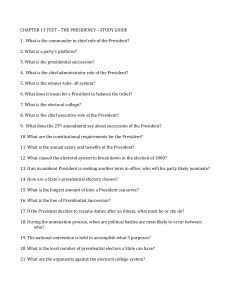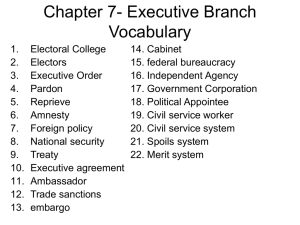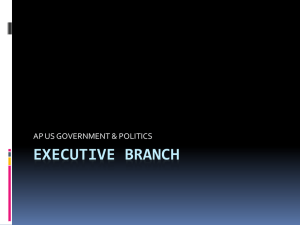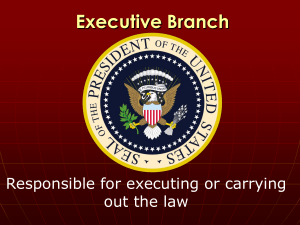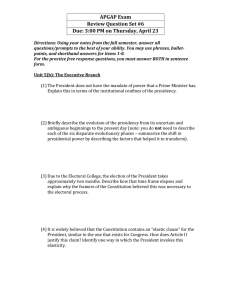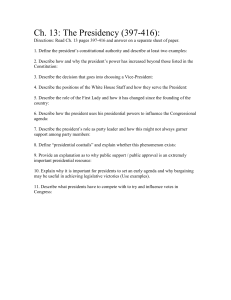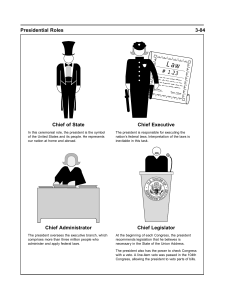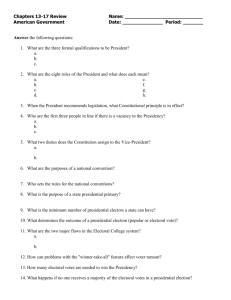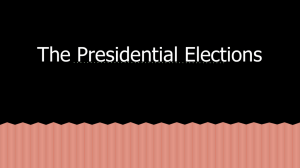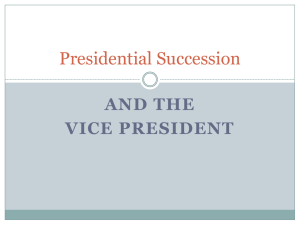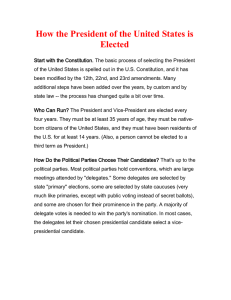Ch. 9 Review PowerPoint
advertisement
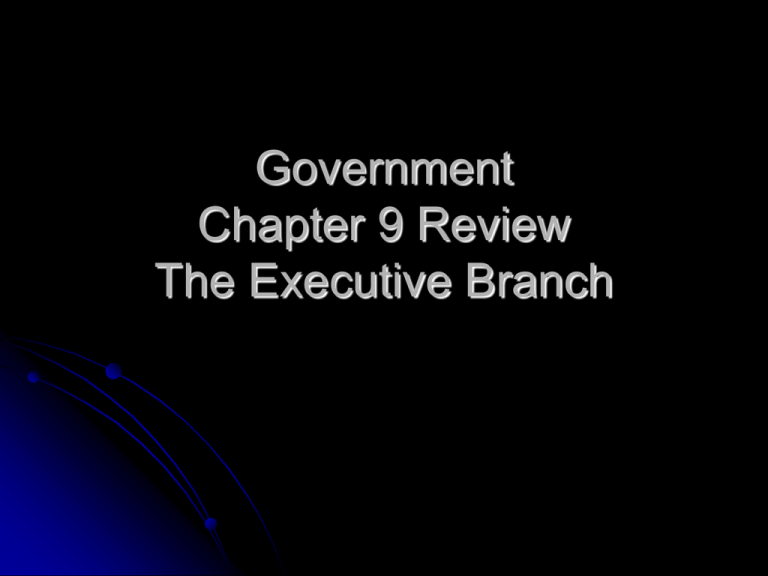
Government Chapter 9 Review The Executive Branch How long is one presidential term? 4 years What part of the Constitution lists the executive power? Article II What are the qualifications for President? 35 years of age Natural-born citizen Resident of the U.S. for 14 years What are the Constitutional powers of the President? Commander-in-Chief pardons treaties sign bills into law veto appoint federal officials State of the Union Receive ambassadors Call Congress into session Commission officers Enforce federal laws What are the traditional roles of the President? Chief of State Party Leader Leader of the Free World What traditional role is the President engaging in when he congratulates the Lakers for winning yet another NBA championship or throws out the first pitch at the world Series? The Chief of State What are some of the limits on the power of the President? Impeachment 2/3 veto override Senatorial consent of appointments Judicial review of presidential actions by federal courts 2-term limit Congressional control of the budget Congress’ power to declare war What is the order of presidential succession? Vice President Speaker of the House President Pro Tempore of the Senate Members of the Cabinet The Central Intelligence Agency (CIA), Environmental Protection Agency (EPA), and National Aeronautics and Space Agency (NASA) are examples of what part of the Executive Branch? Independent Executive Agencies The 23rd Amendment gave Washington DC how many electors? 3, the same as the smallest states Which state has the highest number of electors in the electoral College? California, with 55 electors The number of electors in each state is equal to what? The state’s number of representatives in Congress How many electoral votes is required to win a presidential election? at least 270 (a majority) Official representatives to foreign governments ambassadors An organization of government departments, agencies, and offices bureaucracy A group of policy advisors to the President, including the executive department heads The Cabinet The right of the President to keep some information secret from Congress and the courts Executive privilege The branch of government responsible for carrying out laws The executive branch Rules and regulations that executive branch employees must follow executive orders Which Department carries out foreign policy, supervises ambassadors and other U.S. diplomats, and represents the U.S. at the United Nations? The Department of State Which Department investigates and prosecutes violations of federal laws, operates federal prisons, and represents the government in lawsuits? The Department of Justice Which Department was created in 2003 to deal with post-9/11 issues The Department of Homeland Security Which Department manages national parks and protects fish, wildlife, and other natural resources? The Department of the Interior
